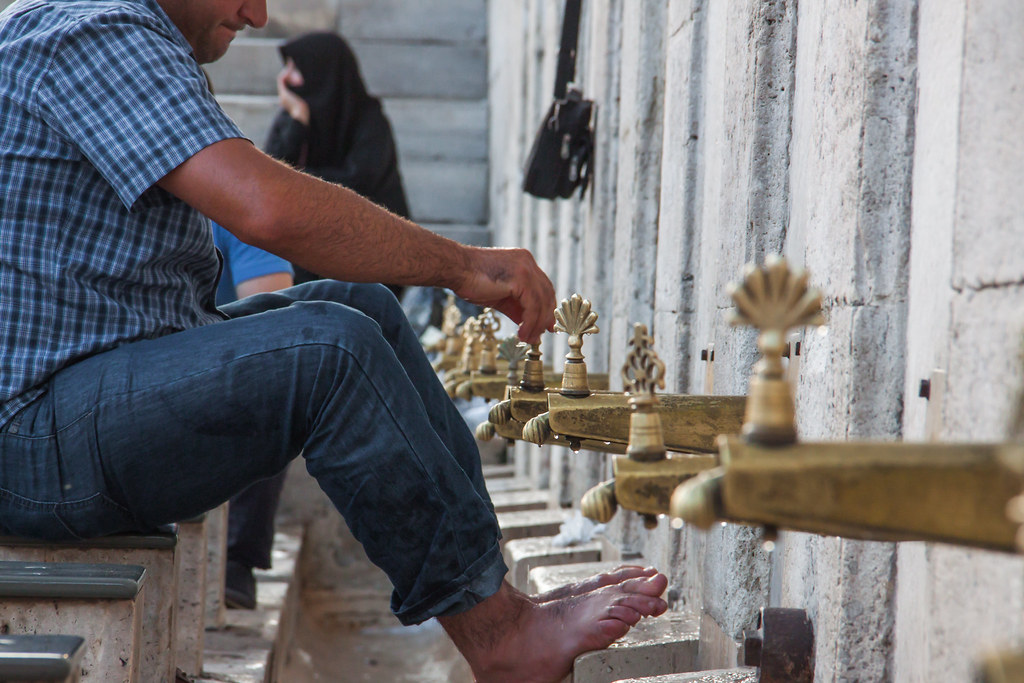How Do I Make Wudu Using a Small Vessel? (Shafi’i)
Shafi'i Fiqh
Answered by Shaykh Jamir Meah
Question: Assalamu alaykum
How to use a lota? What is the amount of water to be used for wudu when using a lota?
Answer: Assalamu alaykum,
Jazakum Allah khayr for your question. I understand the lota mentioned in the question to be a small spherical water vessel used in South Asia, also known as a ‘bodna’ in some regions of the subcontinent, and as a ‘buta’ in parts of Africa.
One can use the lota to make wudu, but if an ordinary (larger) vessel or bucket, or normal taps are available, they might be easier.
How to use the lota
There are three ways one could use the lota to make wudu:
1. To pour water directly from the lota over each limb of wudu (making the intention when washing the face, then washing the arms, then wiping/washing the head, then washing the feet). It would be sunna to rub/massage the washed area after pouring water on each limb.
2. To cup one hand, and with the other hand pour water from the lota into the cupped hand. Then wash and rub each limb from this cupped hand with water, refilling the water into it the lota as and when needed.
3. To scoop water with one’s hand from the lota and wash the limbs.
This last way is perhaps the trickiest, as according to the reliable opinion in the Shafi’i school, after one finishes washing the face completely, and at the moment they come to scoop water from the vessel to wash the hands and arms, one must make the intention of ‘al ightiraf’ meaning intending to scoop water and wash the hand outside of the vessel.
Without this intention, as soon as one puts their hand into the vessel, it is counted as the beginning of washing the hand/arm, and the water in the vessel automatically becomes ‘used’ water, and can no longer be used for purification of the other limbs. (This intention / ruling only applies to water that is less than 216 liters. but not if it is more than this)
This foremost opinion of the school is quite a technical and subtle ruling. If it is too difficult, then there is another opinion, held by Imam al Ghazali and Shaykh Ba Makhrama, that the intention of ‘al ightiraf’ is too difficult for the ordinary laymen and therefore not obligatory [al Bayan wal Tarif]. Alternatively, one may simply just throw away the water after washing the first hand/arm and refill the vessel each time, though this may undesirable due to waste of water.
Warmest salams,
[Shaykh] Jamir Meah
Shaykh Jamir Meah grew up in Hampstead, London. In 2007, he traveled to Tarim, Yemen, where he spent nine years studying the Islamic sciences on a one-to-one basis under the foremost scholars of the Ribaat, Tarim, with a main specialization and focus on Shafi’i fiqh. In early 2016, he moved to Amman, Jordan, where he continues advanced studies in a range of Islamic sciences, as well as teaching. Jamir is a qualified homeopath.
